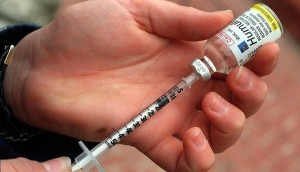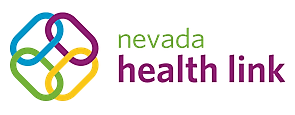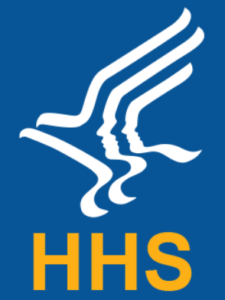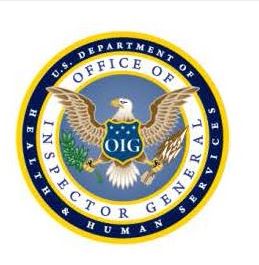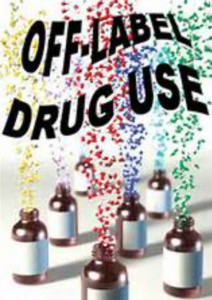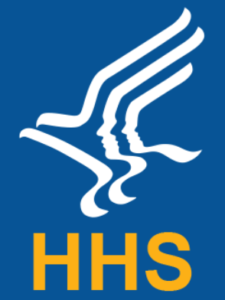- Nevada to expand mental health services with new community-based clinics (reviewjournal.com)
The U.S. Department of Health and Human Services announced...that Nevada will expand mental health care services with the implementation of new community-based behavioral health care clinics...The whole idea is to try to provide better integrative care to individuals that have both substance abuse and mental disorders...We’ve never done well in this state, and probably most other states, in coordinating so that patients are getting care by the same team…the two-year Certified Community Behavioral Health Clinic...will offer 24-hour mobile crisis services, outpatient mental health and substance abuse treatment as well as recovery support.
- Nevadans will pay more for Obamacare plans, but it could have been much worse (reviewjournal.com)
It may not feel like it, but Nevadans who get their health insurance courtesy of the Affordable Care Act can consider themselves relatively lucky as 2017 comes into focus...Yes, they will pay an average of 11 percent more in premiums for their coverage than they did this year. And, yes, many will only be able to pick from plans offered by a single insurer...But it could have been far worse. Proof lies just across the border in Arizona, where some premiums are skyrocketing by triple digits and most insurers have fled the market...A new federal report on insurance premium prices released earlier this week and a county-level analysis published...by the Associated Press and consulting firm Avalere Health painted a comprehensive picture of the state of ACA health care insurance entering 2017...It wasn’t pretty...report by the Department of Health and Human Services showed that premiums for a midlevel benchmark plan will increase an average of 25 percent in 2017 across the 39 states served by the federally run online market, including Nevada...HHS officials noted that a majority of those who purchase plans through HealthCare.gov and its state-run counterparts – including Nevada’s Silver State Health Insurance Exchange — receive financial assistance and may not see their out-of-pocket expenses increase much, if at all. It may not feel like it, but Nevadans who get their health insurance courtesy of the Affordable Care Act can consider themselves relatively lucky as 2017 comes into focus.
- Medicare fraud investigators wary of soaring compounded drug prices (medcitynews.com)
Government spending on compounded drugs that are handmade by retail pharmacists has skyrocketed, drawing the attention of federal investigators who are raising fraud and overbilling concerns...Spending on these medications in Medicare’s Part D program, for example, rose 56 percent last year, with some of the costliest products, including topical pain creams, priced at hundreds or thousands of dollars per tube. The federal workers’ compensation program has also seen a recent spike in spending...The spending jump, along with a sharp increase in the number of patients getting the compounded drugs "may indicate an emerging fraud trend,"...
- Insulin prices have skyrocketed, putting drug makers on the defensive (statnews.com)Expenditures and Prices of Antihyperglycemic Medications in the United States: 2002-2013 (jama.jamanetwork.com)
Here’s a sticking point for diabetics: the cost of insulin more than tripled — from $231 to $736 a year per patient — between 2002 and 2013...The increase reflected rising prices for a milliliter of insulin, which climbed 197 percent from $4.34 per to $12.92 during the same period. Meanwhile, the amount of money spent by each patient on other diabetes medications fell 16 percent, to $502 from $600...The analysis also found that the cost of various...oral diabetes drugs either dropped in price or did not rise nearly as significantly as insulin. Metformin...fell to 31 cents in 2013 from $1.24 per tablet in 2002. And the newer class of diabetes drugs known as DPP-4 inhibitors rose 34 percent since becoming available in 2006...some doctors say diabetic patients, who are typically 60 years old or more, have difficulty paying for drugs, especially those who have trouble once they hit the donut hole in the Medicare Part D program and have to cover costs themselves...The cost of therapy is huge...I have patients who tell me that they have to stretch out the use of their medicines...High costs can lead to reduced compliance...
- Nevada shows uptick in enrollments for Affordable Care Act (reviewjournal.com)
About a week after the largest-ever open enrollment day for Affordable Care Act coverage, federal health officials are reporting a year-to-year enrollment increase, with states including Nevada posting an uptick...Nevadans...coverage increased about 3 percent — or by about 1,900 people — over 2015…The number of plan selections...was 60,617 in Nevada, compared with 58,752 by last year’s...deadline...In a statement Wednesday, officials argued the increase showed “clear demand for quality, affordable coverage.”
- Faster registration, more transparency punctuate new HHS clinical trial final rule (medcitynews.com)
The Department of Health and Human Services issued its final rule on submitting registration and summary results to clinicaltrials.gov. In a nutshell, the new guidelines define which clinical trials must be registered and when, how results should be reported (and when) and potential penalties for non-compliance...The rule seeks to clarify the Food and Drug Administration Amendments Act of 2007, which left significant room for interpretation...Enhancing access to clinical trial information means more useful data for patients and scientists. People who have exhausted their treatment options may have more access to experimental therapies. Scientists can build on trial success and avoid failures...Overall, the rule is getting good reviews for its effort to increase transparency and respond to systemic flaws...It reflects that we have this learning healthcare system, which is what we want...We want laws that learn, that take feedback and are able to understand what is working and what is not working and be amended in order to work better...
- Drug co-pay assistance programs facing increasing state, federal scrutiny (cnbc.com)
Charity-run funds to help patients pay high co-payments face new scrutiny by prosecutors in two states and increased federal oversight, amid increasing questions about how they mask high drug prices...Three drugmakers — Gilead Sciences, Jazz Pharmaceuticals and Biogen — disclosed subpoenas this spring related to their funding of co-pay assistance programs...The Department of Health and Human Services' office of the inspector general stepped up its oversight of patient groups' relationships with pharmaceutical companies beginning late last year by alerting patient groups to possible violations of Medicare's anti-kickback rules... patients not getting their drugs would drag down (pharmaceutical companies') entire pricing approach...So it's easily worth it to them to donate to a charity, even if it costs them a few million dollars...Drugmakers aren't allowed to directly cover patients' prescription co-payments for Medicare or Medicaid, but they can donate to patient charities as long as they are independent of the pharmaceutical companies...One of the issues some find troubling about both co-pay assistance and coupons is that neither are for the uninsured. Insurers say they use co-payments to steer patients to less expensive drugs that are equally effective. So when co-payments are subsidized, patients are insulated from the high cost of a drug and insurers and employers bear the brunt of the drug price, which then gets built into premiums paid by consumers...
- NACDS hails rule relaxing access to pharmacy rewards (chaindrugreview.com)
The Department of Health and Human Services is giving pharmacies more flexibility to extend their reward and loyalty programs to beneficiaries in government programs such as Medicare and Medicaid…it will allow government program beneficiaries to enjoy access to programs voluntarily implemented by pharmacies, which reduce health care costs, improve quality and promote patient health...This is a very positive step forward for pharmacy patient care...and of the expanded innovative programs that pharmacies provide...Programs vary in their designs but often include cost savings or other rewards for filling prescriptions or engaging in other health-related activities, such as health screenings, medication adherence programs or healthy lifestyle behaviors…
- FDA to hold long-awaited meeting to review off-label marketing (statnews.com)
After years of anticipation, the Food and Drug Administration will hold a public, two-day meeting in November to review the extent to which so-called off-label information about medicines may be disseminated to physicians...the FDA has taken a firm stance toward the issue. A key concern is that public health could be jeopardized if a company were to distribute information about an unapproved use that had not been proven to be safe and effective, a standard for regulatory approval...drug makers have argued that conveying certain types of information is protected by the First Amendment...drug makers and their supporters have grown impatient and fear that various court rulings might become a de facto standard. Last winter, an independent review panel was floated as a way to address the issue. Last May, two lawmakers accused the Department of Health and Human Services of delaying new rules and issued a draft bill that would allow companies to market products for unapproved uses...
- HHS Proposes Expanding Prescriptions for Opioid Addiction Treatment (pharmacytimes.com)
The Department of Health and Human Services has proposed allowing physicians to prescribe buprenorphine for twice as many opioid-addicted patients as they do now...Buprenorphine is a medication-assisted treatment for opioid use disorder, and certain physicians are permitted to prescribe or dispense the drug in their offices because it has low potential for abuse...Under current usage guidelines, physicians looking to prescribe and dispense buprenorphine must participate in training before receiving a special Drug Enforcement Administration number. Physicians certified to prescribe buprenorphine for opioid use disorder are currently permitted to prescribe it to up to 30 patients in their first year and then request authorization to prescribe it to up to 100 patients—a cap that HHS said "limits the ability of some physicians to prescribe to patients with opioid use disorder."...If the HHS proposal is adopted, then qualified and currently waived physicians will be able to prescribe buprenorphine for up to 200 patients.




